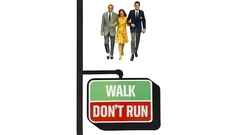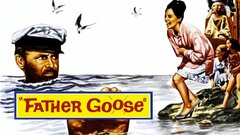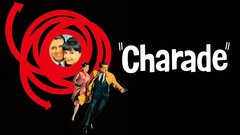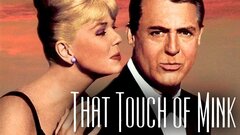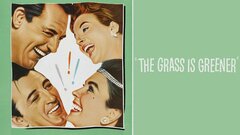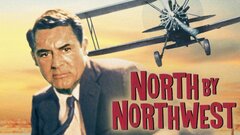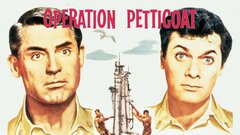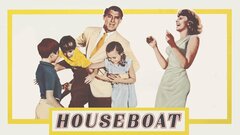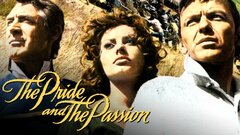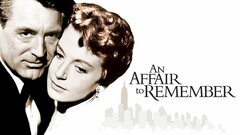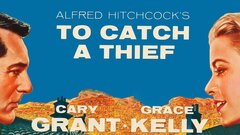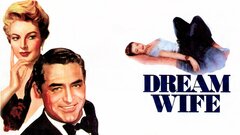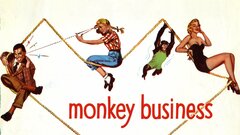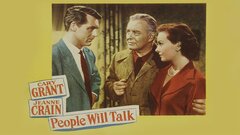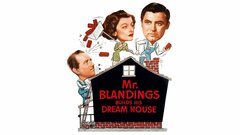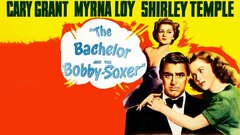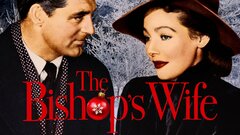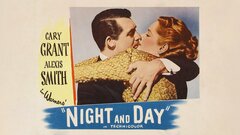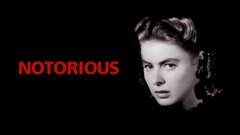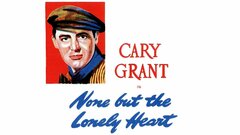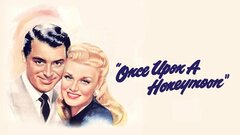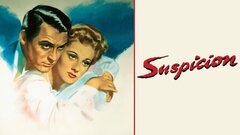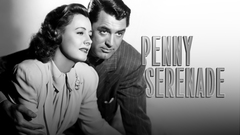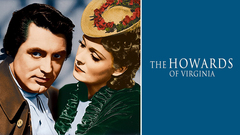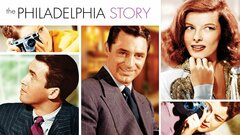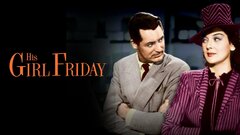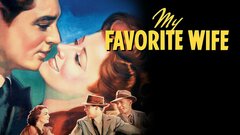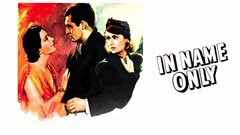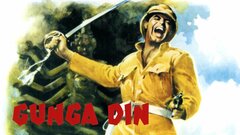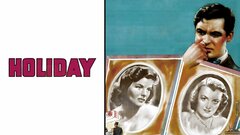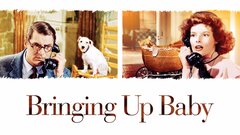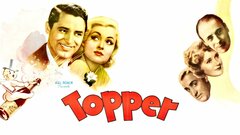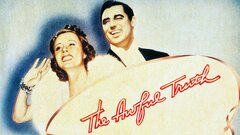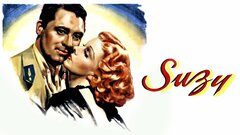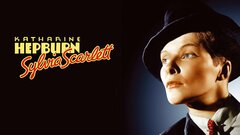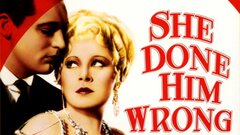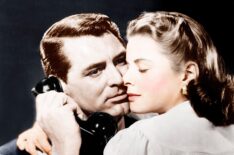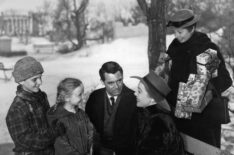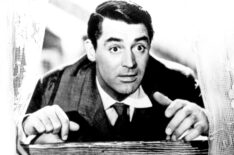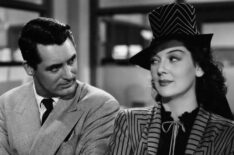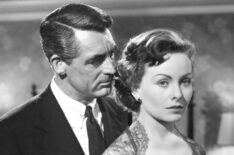Cary Grant was the quintessential movie star - a leading man whose light comic touch, effortlessly debonair screen presence, and devastating good looks proved timeless in their appeal. After escaping a truly Dickensian childhood in England and paying his dues on the American vaudeville circuit, Grant landed his first leading roles in such features as "She Done Him Wrong" (1933).
Having gained notoriety in romantic-comedies like "The Awful Truth" (1937), he went on to star opposite a cavalcade of Hollywood's most luminous leading ladies, including Irene Dunne, Ingrid Bergman, Ginger Rogers, Katharine Hepburn, Eva Marie Saint and Grace Kelly. Classics like "Bringing Up Baby" (1938) paired the star with many of the greatest directors of the golden age of cinema, including Howard Hawks, George Cukor, Frank Capra, Stanley Donen and, most notably, Alfred Hitchcock.
For nearly 30 years, Grant remained a major box office draw in hit films that included "Gunga Din" (1939), "His Girl Friday" (1940), "The Philadelphia Story" (1941), "Notorious" (1946), "To Catch a Thief" (1955), "North by Northwest" (1959) and "Charade" (1963).
So indelible was his contribution to cinema that he was ranked No. 2 on the American Film Institute's list of the 25 Greatest Screen Legends of All Time in 1999, surpassed only by Humphrey Bogart. Perhaps best summing up the myth and reality of the persona he had become so closely identified with, Grant himself once said, "I pretended to be somebody I wanted to be, and, finally, I became that person. Or he became me."
Born Archibald Alexander Leach on Jan. 18, 1904 in Horfield, Bristol, England, he was the only child of Elsie Kingdom and Elias James Leach. An emotionally fragile woman from a poor background, Elsie nonetheless held lofty aspirations for young Archie, who did little to distinguish himself academically at the Bishop Road Primary School.
His already less-than-ideal childhood was dealt a blow when, at the age of nine, Archie was told by Elias that his mother had left them to go on a "long holiday." She never returned, and it was only 20 years later that Archie would learn she had been placed in a mental institution by his father. Introduced to the theater by an instructor who worked at the local Bristol Hippodrome, Archie suddenly envisioned a route out of his unhappy childhood surroundings.
An attempt to run away with a traveling acrobatics troupe ended abruptly when the 13-year-old's exasperated father dragged him back home. It was merely a temporary return, however, as Archie was expelled from Fairfield Grammar School the following year, allowing him to rejoin the Bob Pender Stage Troupe in 1918.
Working as a juggler, comedian and acrobat with the group, the teenager gained valuable experience working the music halls of London and picked up a hint of a Cockney accent along the way. When the Pender Troupe went on a tour of the United States in 1920, Archie leapt at the chance to cross the Atlantic.
At the end of the successful two-year tour of the States, Grant - still performing under his birth name of Archie Leach - chose to remain in New York City. Over the next five years, he eked out a living working a variety of odd jobs, including placard walker, carnival barker and stilt walker. He traveled as a part of a vaudeville team for a time, before performing throughout the country in several musical comedies.
In 1927, he made his first significant Broadway appearance in the musical "Golden Dawn," followed by roles in the productions "Boom Boom" (1929), "A Wonderful Night" (1929) and "Nikki" (1931). Convinced that his performance skills, comic timing and natural charm would serve him well in film, the aspiring young performer left for Hollywood, where after a few minor screen appearances, he was signed to a five-year contract with Paramount Pictures.
Instructed by studio executives to change his name, he chose the first name of Cary and after a bit of haggling, settled on the surname of Grant, reasoning that if the initials C.G. had worked so well for movie star Clark Gable, why not him.
The newly-christened Grant soon began appearing in a string of low-budget productions for Paramount, until he gained a bit of attention as an aloof playboy opposite screen siren Marlene Dietrich in "Blonde Venus" (1932). He continued the trend with leading man roles opposite Mae West in two of the buxom sex symbol's most popular films, "She Done Him Wrong" (1933) and "I'm No Angel" (1933).
Reportedly, when casting for the role in the first film, West observed Grant at the studio, pointed out the little known actor to her producer, and said, "If he can talk, I'll take him." Although considered a commercial failure at the time, director George Cukor's romantic-comedy "Sylvia Scarlett" (1935) was a project of momentous firsts for Grant. Not only did it mark the first of his many memorable pairings with the indomitable Katharine Hepburn, but was also widely considered to be the film in which Grant's signature personality initially began to emerge on screen.
Playing a Cockney entertainer in a traveling troupe, it was a role perfectly suited for him, one that allowed him to draw on his experiences with the Pender Theater Troupe 15 years earlier. When his Paramount contract expired in 1937, Grant made the unprecedented move of becoming a free agent, a risky decision that also allowed him the luxury of choosing his own film projects, scripts and directors. As time would tell, it proved to be a gamble that paid off handsomely.
In short order, Grant put his own unique personal stamp on the emerging screwball romantic-comedy genre. Handsome, sophisticated and equally adept at the pratfall or spit-take, he set himself apart from other leading men, even as he served as the perfect foil for his spirited female co-stars.
The supernatural-comedy "Topper" (1937) opposite Constance Bennett gave Grant his first financial hit, thanks to a share of the hefty profits, while "The Awful Truth" (1937) co-starring Irene Dunne made him a bona fide movie star. Basing much of his performance and mannerisms on the latter film's director, Leo McCarey, Grant gave full reign to the effortlessly charming persona he would be forever tied to with his role in "The Awful Truth."
This began a remarkably successful run for the actor, confirmed years later by director and cinema historian Peter Bogdanovich, who noted that, "After The Awful Truth, when it came to light comedy, there was Cary Grant and then everyone else was an also-ran." Over the next four years, Grant starred in an unmatched number of hit films, honing his burgeoning image to a fine gloss with each successive outing.
Grant and Hepburn reteamed twice more to perfect the screwball comedy, first with director Howard Hawks in the classic "Bringing up Baby" (1938), quickly followed by "Holiday" (1938), once again under the guidance of Cukor. More versatile than he was often given credit for, Grant also convincingly played a man of action in films like the rousing adventure "Gunga Din" (1939) for director George Stevens and Hawk's revered aerial drama "Only Angels Have Wings" (1939).
He further perfected the screwball comedy, opposite Rosalind Russell, in "His Girl Friday" (1940) and "My Favorite Wife" (1940), which reteamed him with McCarey and frequent leading lady Irene Dunne. That same year, the smash hit "The Philadelphia Story" (1940) not only broke box office records, single-handedly revived Katharine Hepburn's flagging career, and won two Oscars, but additionally solidified Grant's imperturbable screen persona into a verifiable archetype. So effortlessly effective was the actor that Grant even managed to elevate subpar material such as the melodrama "Penny Serenade" (1941), which earned him his first Oscar nomination.
In one of his most fortuitous and beneficial professional collaborations, Grant worked with the great Alfred Hitchcock for the first time on the romantic psychological-thriller "Suspicion" (1941), opposite Joan Fontaine. In a surprisingly effective break from his usual role type, Grant portrayed a handsome scoundrel suspected of murder. Famously unimpressed with thespians, director Hitchcock would later refer to Grant as "the only actor I ever loved in my whole life." Although still a major box office draw, the harsh new realities brought on by World War II tempered audience's taste for frivolous romantic-comedies, and for the first time Grant's career faltered.
One commercial bright spot of the period was his work in director Frank Capra's adaptation of the stage play "Arsenic and Old Lace" (1944). Although a hit with critics and audiences, Grant later stated that his admittedly over-the-top performance in the macabre comedy was one of his least favorites. Cast as a poor Cockney drifter in London's East End, Grant essayed a character closer to his personal origins than ever before in the drama "None But the Lonely Heart" (1944).
And while it garnered the actor praise from critics and his second Academy Award nomination, the deeply flawed character was so far removed from the silky-smooth charmer he had become known for, that audiences simply could not accept him in the role. After the failure of the film, Grant would never again stray so far from his established persona.
Hitchcock once again provided Grant with some of his best work - not to mention a much needed hit film - in "Notorious" (1946), a masterful espionage thriller co-starring Ingrid Bergman and Claude Rains. Other efforts of the period, such as the mildly diverting fantasy "The Bishop's Wife" (1947), kept Grant on screens, but the successes were fewer and farther between than they once had been.
A serial marrier, Grant would wed a total of five times during his life, to such women as troubled heiress Barbara Hutton and actress Betsy Drake, who he met on the set of the romantic-comedy "Every Girl Should be Married" (1948). After exchanging vows the following year, the couple would appear together on screen once more in "Room for One More" (1952).
With his background in vaudeville and broad comedy, Grant was disdainful of Method acting and wary of the new generation of young stars, who practiced it like Marlon Brando and James Dean. As he closed in on 50, the former king of the box office sensed his relevance beginning to wane, and as early as 1953, began making public rumblings about his imminent retirement. Thankfully, he was tempted back by Hitchcock to co-star with Grace Kelly in "To Catch a Thief" (1955), and later opposite Eva Marie Saint in "North by Northwest" (1959), considered by many to be the two most successful collaborations from the actor-director pair.
After co-starring with Sophia Loren in "The Pride and the Passion" (1956), Grant fell madly in love with his Italian leading lady and pursued her ardently - even asking her to marry him - despite being married to Drake and Loren being involved with her soon-to-be-husband, Carlo Ponti. Always a keen businessman, Grant also began his own production company in the late-1950s, mounting such features as the wartime comedy "Operation Petticoat" (1959), co-starring Tony Curtis.
Struggling to reconcile the disparities of his suave onscreen persona with the humble origins of Archie Leach, Grant became increasingly bitter and unhappy. His increased dissatisfaction with the film business did little to help matters.
With Grant's marriage to Drake foundering, it was she who encouraged him to join her in a new psychiatric experiment employing the little-understood hallucinogenic drug LSD. Grant agreed, and for a time, he claimed that it helped his outlook a great deal, loosening inhibitions and lowering defenses. In the long run, however, it would not provide him with the tranquility he so desperately sought.
Despite his discomfort with the marked differences in their ages, he played leading man to the much younger Audrey Hepburn in Stanley Donen's Hitchcock-esque "Charade" (1963). A year later, he took on a role as a confirmed beach bum reluctantly forced into the role of protector in the WWII comedy-adventure "Father Goose" (1964).
Though considered one of his more lightweight efforts, Grant described the role to be the one closest to his real life personality.
Having divorced Drake three years prior, Grant married the much younger actress Dyan Cannon in Las Vegas in 1965 and the union produced his only child, Jennifer Grant, the following year. His fourth marriage, it was also one of his rockiest, and by the time Grant's final film "Walk, Don't Run" (1966) was released, Cannon - who later accused her husband of verbal and physical abuse - was already preparing for divorce.
Bored with the business of filmmaking and wanting to spend more time with his daughter, Grant announced his retirement from the screen in 1966 and despite several high-profile attempts to lure him back, he would never act in a film again.
In the years that followed, Grant remained active, joining the board of directors for several companies and organizations, including the perfumer Fabergé. By all accounts he enjoyed the fruits of semi-retirement and was genuinely touched when he was honored with an Academy Award for Lifetime Achievement in 1970.
Grant had also managed to reconnect and reconcile with his mother, Elsie, who had been de-institutionalized in the 1930s. The two would remain close until her death at the age of 95 in 1974.
Grant married for the fifth and final time when he wed British publicist Barbara Harris in 1981. Later, he toured the country with a one-man audience participation show, "A Conversation with Cary Grant." It was while preparing for one such performance at the Adler Theater in Davenport, IA on Nov. 29, 1986 that he suffered a cerebral hemorrhage, brought on by a stroke. Cary Grant died later that night at the age of 82.
By Bryce Coleman

